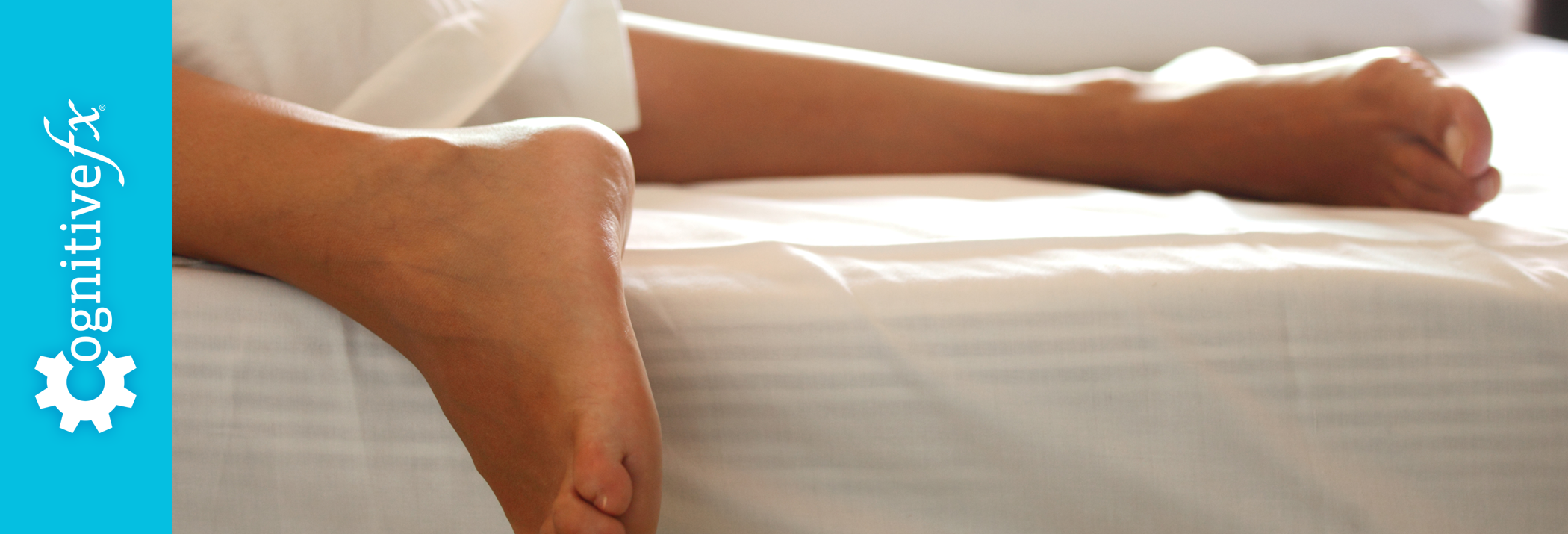5 Ways to Improve Your Sleeping Habits

Sleep: something we tell ourselves we don’t have time for, yet we always seem to need more of it.
According to the Cleveland Clinic, missing even 1.5 hours of sleep can have an impact on one’s body. That means that1 in 3 Americans are weakening their immune systems, making them more prone to illness. Not getting enough sleep also puts you at a greater risk for heart disease, diabetes, cancer, anxiety and depression, weight gain, and stroke, not to mention a decline in the ability to think clearly, and a decline in memory skills. In 2016, 37.9% of adults reported falling asleep unintentionally during the day, and 4.5% said they nodded off at least once while driving in the past month.
With all of these frightening side effects of sleep deprivation, why are we not sleeping more? There are the classic excuses; “I don’t have time”, “I have better or more productive things to be doing”, or “I just can’t seem to get my mind to shut off”.
Here are some tips and tricks our Neurooccupational Therapists at Cognitive FX use to help improve sleep:
- Develop a routine: create a schedule that helps get you ready for bed, while also relaxing you. The body needs consistency in order to work right, so when you develop a routine, your body can more easily fall asleep AND wake up.
- Avoid napping during the day: naps can disturb your normal pattern of sleep. Power naps can be beneficial, but if you’re struggling to fall asleep, the National Sleep Foundationrecommendsstaying away from naps altogether.
- Exercising can promote good sleep: vigorous exercise should occur in the morning or late afternoon. Relaxing exercise such as yoga can be done before bed to help initiate a restful night’s sleep. The National Sleep Foundation has also stated that exercising before bed has proven to slightly reduce symptoms of insomnia.
- Food can disrupt sleep: stay away from large meals close to bedtime. Dietary changes can also cause sleep problems. If someone is struggling with a sleep problem, it’s not a good time to start experimenting with spicy dishes. Huffington Post partnered with Sleep Number to discuss lots of reasons why you should avoid that midnight snack.They say that if you must, you should stick to low-fat and high-protein foods.
- Limit unnatural light exposure: LED lighting can trick the mind into thinking that it is still daytime, so exposure to said lighting right before sleep can reverse the secretion of melatonin, the sleep hormone, which is what tells your body it’s time to prepare for sleep.
- Associate your bed with sleep: Avoid using your bed for activities outside of sleeping such as reading or watching tv. Often it is the performing of other activities in your bed that keeps your brain going fast rather than slowing down for sleepy-time. Early Bird, an online newsletter created by Amerisleep, suggests that if you can’t fall asleep, get out of bed, and don’t get back in until you’re ready to.
The key to successful sleep is determining what works for you, and what your personal needs are. Through using these different tips, you can figure out what those needs are, and you can start getting better sleep. With better sleep comes a better life, so start today!

About the author
Cognitive FX TeamThe "Cognitive FX Team" is a collaborative ensemble of distinguished doctors, therapists, and practitioners. Our experts are pioneers in the field of neuroimaging and concussion treatment. With extensive experience and a strong commitment to patient care, our team excels in utilizing cutting-edge technologies, such as functional MRI (fMRI), to provide personalized diagnostic and treatment strategies. Our renowned professionals have published groundbreaking research, developed innovative neuroimaging biomarkers, and conducted thousands of individualized patient assessments. We take pride in our holistic approach to patient care, focusing on physical, cognitive, and emotional aspects of recovery. As leaders in the industry, the Cognitive FX Team is dedicated to advancing the science of concussion diagnosis and treatment to provide our patients with the highest level of care and support.
Related Posts


Employee Feature | Bethany Lewis
Bethany Lewis is a Neurological Occupational Therapist here at Cognitive FX.



